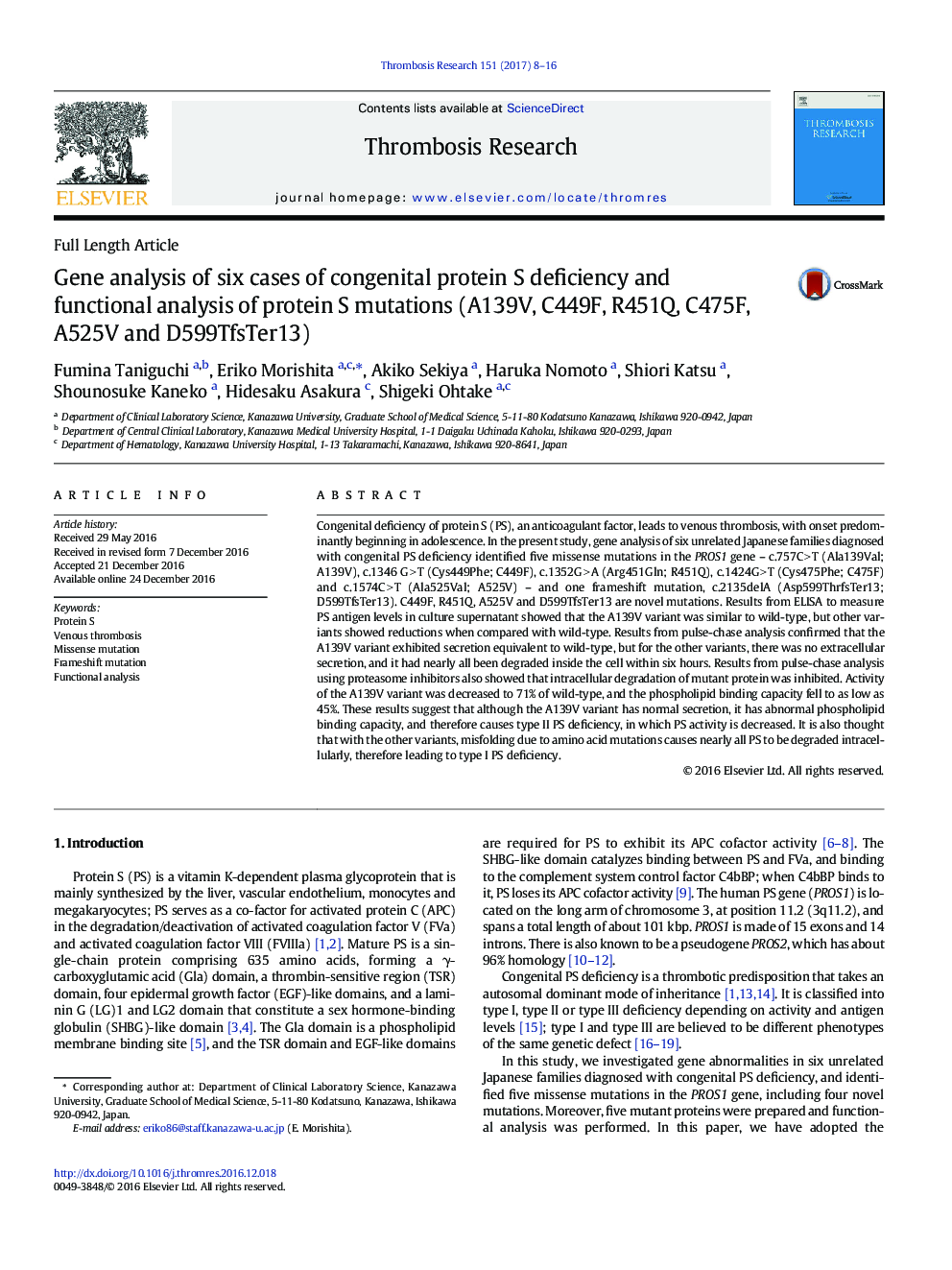| کد مقاله | کد نشریه | سال انتشار | مقاله انگلیسی | نسخه تمام متن |
|---|---|---|---|---|
| 5622050 | 1579192 | 2017 | 9 صفحه PDF | دانلود رایگان |

- We identified five missense mutations and one frameshift mutation in the PROS1 gene.
- C449F, R451Q, A525V and D599TfsTer13 were novel mutations.
- A139V might reduce phospholipid binding capacity and causes type II PS deficiency.
- C449F, R451Q, C475F, A525V and D599TfsTer13 enhance intracellular degradation.
- C449F, R451Q, C475F, A525V and D599TfsTer13 cause type I PS deficiency.
Congenital deficiency of protein S (PS), an anticoagulant factor, leads to venous thrombosis, with onset predominantly beginning in adolescence. In the present study, gene analysis of six unrelated Japanese families diagnosed with congenital PS deficiency identified five missense mutations in the PROS1 gene - c.757CÂ >Â T (Ala139Val; A139V), c.1346 GÂ >Â T (Cys449Phe; C449F), c.1352GÂ >Â A (Arg451Gln; R451Q), c.1424GÂ >Â T (Cys475Phe; C475F) and c.1574CÂ >Â T (Ala525Val; A525V) - and one frameshift mutation, c.2135delA (Asp599ThrfsTer13; D599TfsTer13). C449F, R451Q, A525V and D599TfsTer13 are novel mutations. Results from ELISA to measure PS antigen levels in culture supernatant showed that the A139V variant was similar to wild-type, but other variants showed reductions when compared with wild-type. Results from pulse-chase analysis confirmed that the A139V variant exhibited secretion equivalent to wild-type, but for the other variants, there was no extracellular secretion, and it had nearly all been degraded inside the cell within six hours. Results from pulse-chase analysis using proteasome inhibitors also showed that intracellular degradation of mutant protein was inhibited. Activity of the A139V variant was decreased to 71% of wild-type, and the phospholipid binding capacity fell to as low as 45%. These results suggest that although the A139V variant has normal secretion, it has abnormal phospholipid binding capacity, and therefore causes type II PS deficiency, in which PS activity is decreased. It is also thought that with the other variants, misfolding due to amino acid mutations causes nearly all PS to be degraded intracellularly, therefore leading to type I PS deficiency.
Journal: Thrombosis Research - Volume 151, March 2017, Pages 8-16